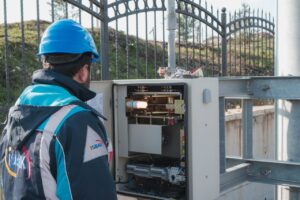Electrical Engineering Jobs in the USA for International Professionals in 2025/2026

Electrical engineering remains a robust and dynamic field in the United States, offering numerous opportunities for international professionals in 2025 and 2026. With rapid technological advancements and infrastructure upgrades, the demand for skilled electrical engineers continues to grow across diverse industries.
Job Market Overview and Growth Prospects
The U.S. Bureau of Labor Statistics (BLS) projects a 9% growth in electrical and electronics engineering jobs from 2023 to 2033, which is much faster than the average for all occupations. This growth translates to about 19,000 new openings annually, driven by both industry expansion and retirements of experienced engineers. Although some sources cite a more conservative 2% growth from 2021 to 2031, the overall outlook remains positive, especially in sectors like renewable energy, telecommunications, and advanced manufacturing.
Key Sectors Hiring Electrical Engineers
Electrical engineers in the U.S. find opportunities in a variety of sectors:
-
Engineering Services: The largest employer segment, where engineers develop projects involving electronic devices and systems.
-
Electric Power: Upgrading and maintaining the nation’s power grids to support sustainable energy solutions.
-
Research and Development: Innovating in solar arrays, semiconductors, communications technology, and automation.
-
Manufacturing and Aerospace: Designing electrical systems for products ranging from consumer electronics to aircraft.
Geographic Hotspots and Salary Expectations
Top states for electrical engineering employment include California, Texas, New York, Michigan, and Massachusetts. Median salaries vary, with California and Massachusetts offering some of the highest pay, exceeding $113,000 annually. Specialized industries such as mining support, oil and gas extraction, and aerospace manufacturing offer salaries above $115,000.
Opportunities for International Professionals
International electrical engineers have promising prospects in the U.S. job market, especially with visa sponsorship options. Many leading companies actively sponsor visas, including:
-
General Electric (GE)
-
Tesla
-
Lockheed Martin
-
Intel
-
Siemens
These companies work on cutting-edge projects in renewable energy, electric vehicles, aerospace, semiconductors, and automation.
Navigating Visa Sponsorship
Visa sponsorship is crucial for international professionals seeking employment in the U.S. Common visa types for electrical engineers include:
-
H-1B Visa: For specialized roles requiring advanced engineering knowledge.
-
O-1 Visa: For individuals with extraordinary ability or achievements.
-
TN Visa: Available for Canadian and Mexican citizens under the USMCA agreement.
Job seekers can improve their chances by leveraging job boards (LinkedIn, Indeed, Glassdoor), company career pages, recruitment agencies, and professional associations like IEEE for networking and job leads.
Skills and Qualifications in Demand
Employers typically require at least a bachelor’s degree in electrical engineering or a related field. Practical experience through internships or cooperative programs is highly valued. Key skills include:
-
Electrical hardware design and troubleshooting
-
Project management and systems engineering
-
Knowledge of power systems, controls, and instrumentation
-
Familiarity with emerging technologies such as renewable energy systems and automation.
Benefits of Working as an Electrical Engineer in the USA
-
Competitive Salaries: Median wages exceed $100,000, with higher pay in specialized industries and urban centers.
-
Career Growth: Access to certifications, training, and advancement opportunities.
-
Innovative Work: Participation in transformative projects in energy, telecommunications, and technology.
-
Diverse Work Environments: Opportunities in utilities, manufacturing, aerospace, and tech companies.
Tips for International Candidates
-
Highlight your specialized skills and experience relevant to U.S. industry needs.
-
Gain certifications or training recognized in the U.S. market.
-
Network through professional organizations and attend industry events.
-
Prepare for visa application processes early and seek employers with a history of sponsoring international talent.
In conclusion, electrical engineering offers a rewarding career path in the U.S. for international professionals in 2025 and 2026. With strong job growth, competitive salaries, and visa sponsorship opportunities from leading companies, the U.S. remains an attractive destination for engineers ready to contribute to innovative and impactful projects.
